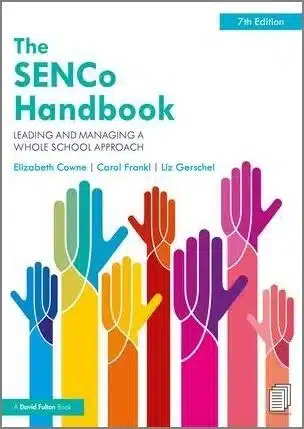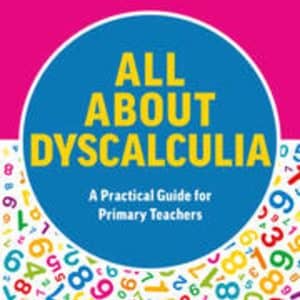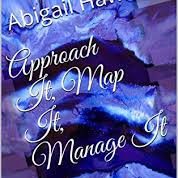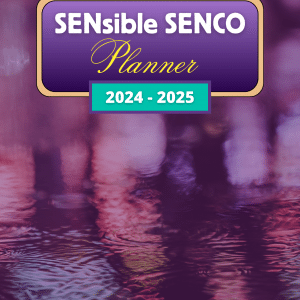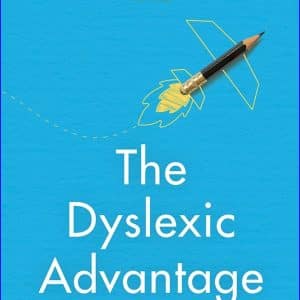SENCO Handbook: Leading and Managing a Whole School Approach by Elizabeth Cowne, Carol Frankl, Liz Gerschel
£36.00
The seventh edition of “SENCO Handbook” addresses the changing role of Special Educational Needs Coordinators (SENCos) and their responsibilities in light of the SEND Code of Practice. It offers practical guidance and essential insights for SENCos and educational leaders.
Full Description
SENCO Handbook: Leading and Managing a Whole School Approach by Elizabeth Cowne, Carol Frankl, Liz Gerschel
The seventh edition of “The SENCo Handbook,” authored by Elizabeth Cowne, Carol Frankl, and Liz Gerschel, has been thoughtfully updated to reflect the profound impact of the implementation of the SEND Code of Practice (DfE/DoH 2015) on policies and practices within schools and for Special Educational Needs Coordinators (SENCos). This indispensable resource offers essential insights into statutory requirements, practical strategies for the SENCo role, and insightful analysis of issues pertinent to all educational settings, Early Years establishments, and colleges.
Through lively debate and discussion, the book illuminates the evolving nature of the SENCo role and how it will continue to evolve. Presented in an accessible and informative format, enriched with numerous examples of best practices, this book serves as a valuable resource for SENCos, headteachers, and educational leaders, aiding them in developing and implementing effective whole-school policies for special educational needs.
Key topics covered include:
- Leading and facilitating change in SEND policy and practices.
- Cultivating whole-school approaches to SEND policy and practices.
- Empowering class and subject teachers to meet the diverse needs of all students.
- Overseeing and leading the assess, plan, do, review process for those with additional needs.
- Managing and directing the deployment of support staff.
- Collaborating with children, young people, and their parents, particularly in cases involving Education, Health, and Care (EHC) Plans.
- Forging partnerships with a range of external agencies and services.
- Providing insights into the historical context and administration of current SEND law.
The book includes photocopiable training materials, along with new resources in appendices and source lists. “The SENCo Handbook” remains essential reading for individuals pursuing the National Award for SEN Coordination. Seasoned SENCos will also appreciate its academic foundation and practical guidance on critical issues.

